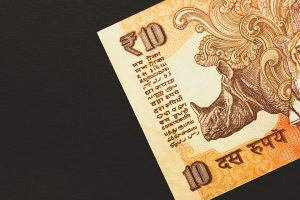Forex trading is a popular investment option for those looking to make a profit from currency fluctuations. However, like all investments, forex trading is subject to taxation. Understanding how tax works with forex trading is essential for any trader looking to stay on the right side of the law and maximize their profits.
In this article, we’ll explore how tax works with forex trading, including the different types of taxes that apply, how to keep accurate records, and how to minimize your tax liability.
Types of Taxes
Forex trading is subject to several different types of taxes, depending on the country in which you are trading. The most common types of taxes that apply to forex trading include:
Income Tax – In most countries, forex trading profits are classified as income and are subject to income tax. The rate of income tax varies depending on your tax bracket and the amount of profit you make.
Capital Gains Tax – Capital gains tax is a tax on the profit you make when you sell an asset, such as a currency pair. In some countries, forex trading profits are subject to capital gains tax instead of income tax.
Value Added Tax – Value added tax (VAT) is a tax on the value added to a product or service at each stage of production or distribution. In some countries, forex trading fees and commissions may be subject to VAT.
Keeping Accurate Records
To ensure that you pay the correct amount of tax on your forex trading profits, it’s essential to keep accurate records of all your trades. This includes recording the date and time of each trade, the currency pair, the amount traded, the price at which you bought and sold, and any fees or commissions paid.
It’s also important to keep records of any losses you incur, as these can be used to offset your profits when calculating your tax liability. Keeping accurate records can be time-consuming, but it’s essential to avoid any issues with the tax authorities.
Minimizing Your Tax Liability
While paying tax on your forex trading profits is inevitable, there are several ways to minimize your tax liability. Here are a few tips to help you reduce your tax bill:
1. Trade through a tax-efficient jurisdiction – Some countries offer tax-efficient trading environments, such as tax-free trading or reduced tax rates on forex profits. Trading through a tax-efficient jurisdiction can help you minimize your tax liability.
2. Offset your losses – As mentioned earlier, losses can be used to offset your profits when calculating your tax liability. So, if you have a losing trade, make sure to record it and use it to reduce your tax bill.
3. Keep your trading expenses low – By keeping your trading expenses low, such as your broker fees and commissions, you can reduce the amount of tax you owe.
4. Use tax-efficient trading vehicles – Some investment vehicles, such as ISAs or SIPPs, offer tax advantages for forex trading. Consider using these vehicles to minimize your tax liability.
Conclusion
Forex trading is subject to taxation, and it’s essential to understand the different types of taxes that apply, keep accurate records of your trades, and minimize your tax liability. By following these tips, you can ensure that you stay on the right side of the law and maximize your profits from forex trading.





